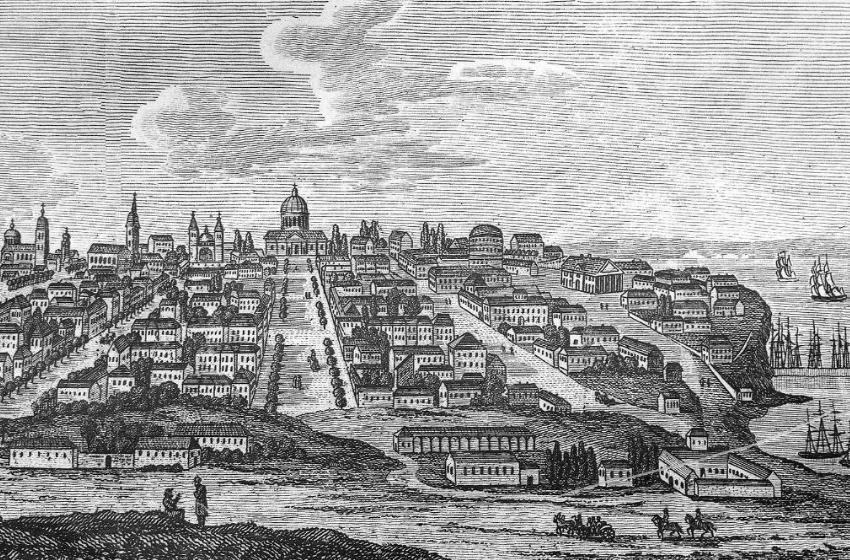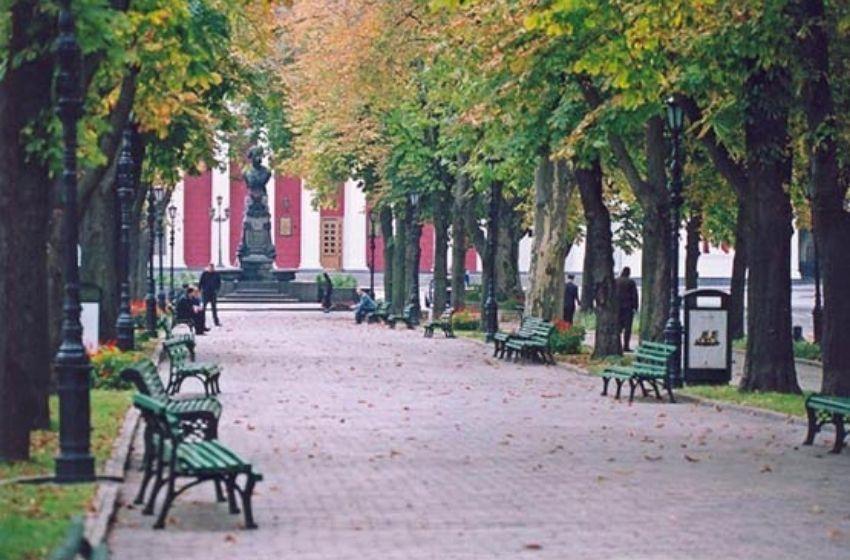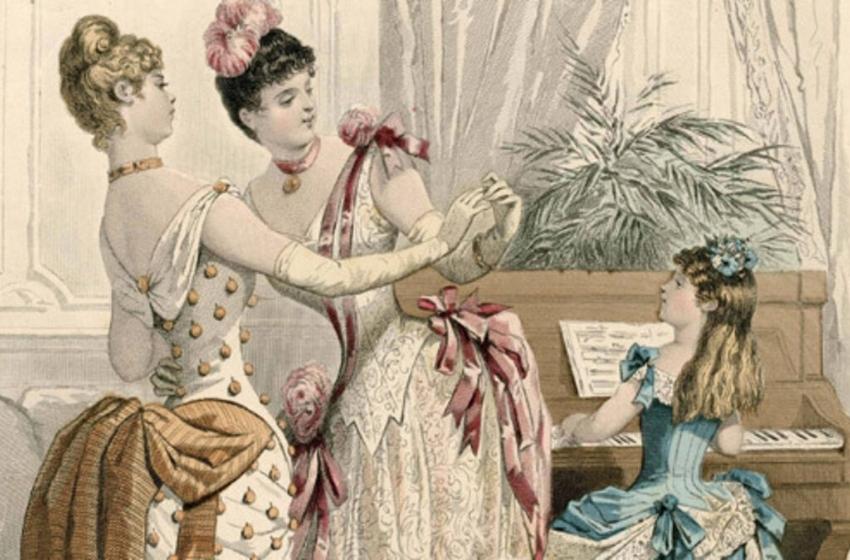In August 1867, Odessa saw the mooring of the world's first long-distance pleasure cruise. The steamboat “Quaker Cityâ€, a former battleship of the American civil war converted into a luxurious passenger cruiser, had left from New York and crossed the Atlantic Ocean and the Mediterranean to reach the Black Sea. It was pre-packaged five-month voyage, carrying rich businessmen, mostly fundamentalist Christians from Ohio and other Midwestern states, interested in visiting Europe, Egypt and the Holy Land.
Among the 80 passengers, one became particularly famous lately: Mark Twain, the renowned American writer, at the time known as Samuel Langhorne Clemens, who was a travel correspondent of the San Francisco Alta California. This newspaper funded his cruise and Mark Twain wrote a humorous book on the journey: “The Innocents Abroadâ€.
In the summer of 1867, the “Quaker City†pitched anchor at the port of Odessa. Odessa was a young, dynamic city and a cultural melting pot. Founded in 1794 by Catherine the Great, it was only a few years younger than Washington, but already one of the largest cities of the Russian Empire and its main commercial port, even though it was, unexpectedly, closer to Vienna, Athens and Istanbul, than to Moscow and St.Petersburg. Approx. a quarter of its population was Jewish, due to its more tolerant and cosmopolitan spirit.
"The city has a population of one hundred and thirty-three thousand, and is growing faster than any other small city out of America. It is a free port, and is the great grain mart of this particular part of the world. Its roadstead is full of ships. Engineers are at work, now, turning the open roadstead into a spacious artificial harbor. It is to be almost inclosed by massive stone piers, one of which will extend into the sea over three thousand feet in a straight line."

When the writer stepped ashore, he was impressed by the Odessa's cascade of stone steps, the most famous staircase in the world, beckoning him from the docklands to the upper city. At the top, the statue of the Duke de Richelieu looked like a casual visitor peering out over the harbour. Twain took his way to the heights and gazed out over the grain silos and quays below. Around him rose the city centre, buzzing with trade, shipping and exchange. Mark Twain recognised the industrious spirit of his Country:
"I have not felt so much at home for a long time as I did when I “raised the hill†and stood in Odessa for the first time. It looked just like an American city; fine, broad streets, and straight as well; low houses, (two or three stories,) wide, neat, and free from any quaintness of architectural ornamentation; locust trees bordering the sidewalks (they call them acacias); a stirring, business-look about the streets and the stores; fast walkers; a familiar new look about the houses and every thing; yea, and a driving and smothering cloud of dust that was so like a message from our own dear native land that we could hardly refrain from shedding a few grateful tears and execrations in the old time-honored American way. Look up the street or down the street, this way or that way, we saw only America!"
Moreover, in his book Mark Twain wrote a tribute to the Duc de Richelieu, one of the city's early builders, probably recalling the well-known character of “The Three Musketeers†of Alexandre Dumas’:
“We only found two pieces of statuary, and this was another blessing. One was a bronze image of the Duc de Richelieu, grand-nephew of the splendid Cardinal. It stood in a spacious, handsome promenade, overlooking the sea, and from its base a vast flight of stone steps led down to the harbour, two hundred of them, fifty feet long, and a wide landing at the bottom of every twenty. It is a noble staircase, and from a distance the people toiling up it looked like insects. I mention this statue and this stairway because they have their story. Richelieu founded Odessa, watched over it with paternal care, labored with a fertile brain and a wise understanding for its best interests, spent his fortune freely to the same end, endowed it with a sound prosperity, and one which will yet make it one of the great cities of the Old World.â€

Not far away from Odessa, there was Alexander II’s summer palace at Yalta, in Crimea. The Tzar, who had recently sold Alaska to the United States for a bargain-basement price of seven million dollars, heard about the cruise and invited the Americans to pay him a visit. The group accepted and crossed the countryside onto several carriages and landau to Livadia Palace, the royal dacha.
At Livadia, the Tzar and Tzarina, along with their youngest son and daughter, received the visitors graciously. In a spirit of noblesse oblige, they wore no jewels or uniforms. The Emperor offered to show the palace and its park and then invited the guests for a breakfast with the royal family, where they served lemon tea with sushka (cracker ring). The visitors remained impressed by the Emperor’s informal and simple manners, unusual for meeting official delegacies.
(In February 1945, a far more important meeting was held at Livadia Palace: the Yalta Conference, where the American President Franklin D. Roosevelt, the British Prime Minister Winston Churchill and the Soviet Premier Joseph Stalin determined the fate of post-war Europe).
The cruise had an happy ending for Mark Twain. During the trip that he met a fellow passenger Charles Langdon, who showed him a picture of his sister Olivia. She will become his wife, after a long court. The Writer later claimed to have fallen in love with her at first sight.
























